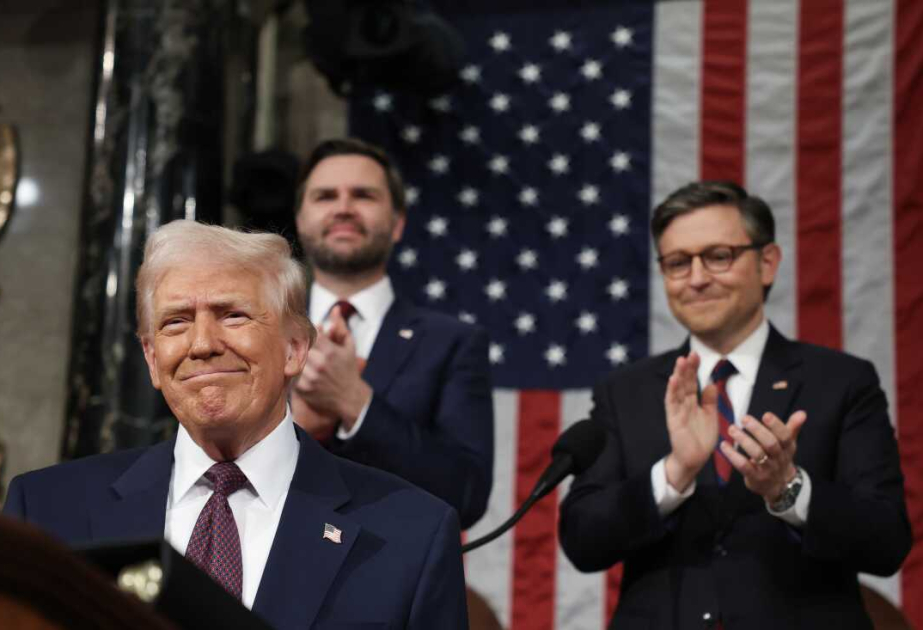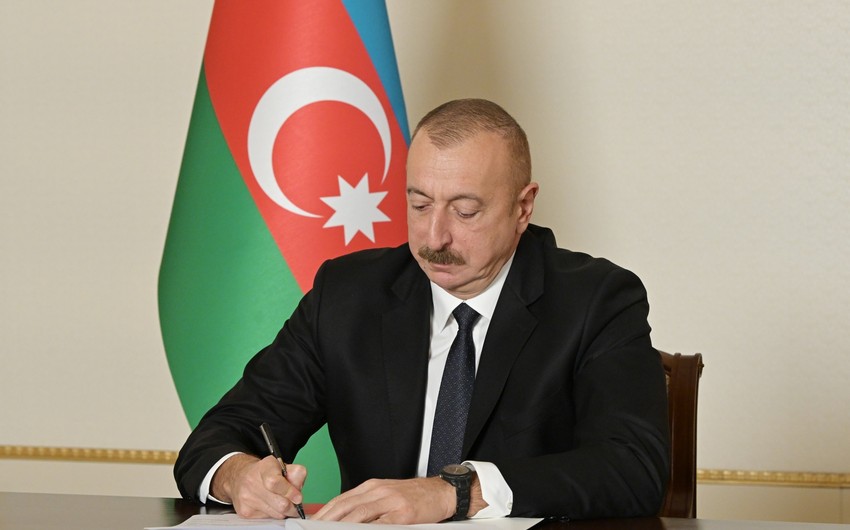Donald Trump’s return to the U.S. presidency in 2025 has led to a more assertive implementation of the “America First” foreign policy doctrine. This approach prioritizes U.S. national interests above all, revaluates relations with international organizations, and aims to limit America’s role in global leadership.
One of the core elements of Trump’s approach is reassessing the U.S. relationship with international organizations. According to him, institutions and agreements such as the United Nations, the World Health Organization, and the Paris Climate Accord do not yield tangible benefits for the United States.
Thus, since 2025, Trump’s hardened “America First” policy represents a departure from the traditional U.S. role in the international system, favoring a more isolationist stance grounded in national priorities.
1. Trade and Economic Policy
Trump plans to impose additional tariffs to correct the U.S. trade balance and support domestic manufacturing. These measures particularly target China and other key trade partners. Some observers note that such a policy could result in economic uncertainty.
Upon returning to office, Trump has maintained economic protectionism and the stimulation of domestic production as key pillars of his “America First” strategy. He has reintroduced large-scale tariff policies intended to correct trade imbalances and protect domestic industries from foreign competition.
The Trump administration believes that by imposing tariffs on foreign goods, more favorable conditions will be created for American producers, boosting demand for domestic products. This is presented as a strategic move to bring jobs back to the U.S. and revive the industrial sector.
However, economists and trade experts have raised concerns about broader consequences. First, additional tariffs increase the cost of imported goods, potentially leading to price hikes in the U.S. consumer market. This can fuel inflation and reduce purchasing power.
According to analyses by major financial institutions like Goldman Sachs, tariffs on Chinese goods in 2025 may pressure China’s economy but also disrupt global supply chains, thereby increasing uncertainty in the global economy. China, may restrict the export of strategic goods, particularly rare earth elements, impacting the U.S. high-tech industry.
American industries and the agricultural sector may also suffer from the trade confrontations. For instance, countries like China may seek alternative markets for agricultural imports previously sourced from the U.S., reducing sales opportunities for American farmers.
While Trump’s tariff-based economic policy might boost short-term domestic production, in the long run it poses risks of deteriorating global economic ties, deepening trade wars, and weakening economic stability. Hence, the success and sustainability of this policy continue to be widely debated among economists and policymakers.
2.NATO and Relations with Europe
Trump plans to reassess NATO’s mission and goals. He demands increased defense spending from member states and conditions U.S. defense commitments on this requirement.
Trump’s main argument is that many European NATO countries are not meeting the 2% GDP military spending target. Major members like Germany, Spain, and Italy either fail to meet this commitment or are delayed in doing so.
During his previous term, Trump repeatedly labeled NATO as “obsolete” and even considered a U.S. withdrawal. After returning to the presidency in 2025, he has continued this rhetoric, stating that NATO members must either increase their military spending or not expect American support.
This stance could undermine America’s strategic position in Europe and its leadership in global security frameworks. It has caused significant concern within NATO, as the alliance’s foundation—the principle of collective defense—may be weakened by such conditional support. European leaders view Trump’s “conditional defense” approach as a serious threat to Western unity.
Nevertheless, Trump’s pressure may also prompt European countries to take greater responsibility for their defense and reduce dependence on the U.S. Some analysts suggest that this could lead to the development of new formats within NATO and more balanced burden-sharing mechanisms.
Trump’s NATO policy reflects a broader reassessment of the alliance’s geopolitical function and the U.S. role in international security.
3. Relations with Russia
Trump aims to normalize relations with Russia and claims he could end the Ukraine war “within 24 hours.” However, some members of his administration support a more hawkish stance toward Russia.
Trump’s foreign policy toward Russia remains controversial and multifaceted. He has repeatedly stated that he could normalize relations with Russia and end the ongoing war in Ukraine within “24 hours.” This claim is based on his personal diplomatic skills and alleged rapport with Vladimir Putin.
His position sharply contrasts with the approaches of current and former U.S. administrations. His rhetoric reflects skepticism toward continued military and financial aid to Ukraine. He believes such aid burdens the U.S. economy and that resources should be directed toward resolving domestic issues.
However, within his administration and the Republican Party, there are divisions regarding Russia. Some top Republican officials and national security advisors advocate a tougher stance, arguing that Russia can only be deterred through strength and sanctions.
The details of Trump’s “24-hour peace plan” remain undisclosed, raising questions among analysts and observers. Experts argue that such a swift resolution would likely come at the cost of Ukraine’s territorial integrity and sovereignty, contradicting international law and potentially damaging relations with U.S. allies.
Trump’s approach toward Russia also alarms European countries, especially those in NATO’s eastern flank, who fear the impact of a weakened U.S. security commitment.
Overall, Trump’s Russia policy is a key factor influencing U.S. global leadership, international security architecture, and the future of Ukraine. Its success or failure will depend not only on Trump’s diplomacy but also on the real interests and geopolitical dynamics of the involved parties.
4. Iran and Middle East Policy
Trump plans to impose additional sanctions to restrict Iran’s nuclear program. He is also pursuing diplomatic initiatives to resolve regional conflicts and increase U.S. influence in the Middle East.
He has used executive authority to withdraw the U.S. from the Paris Climate Accord and other international climate obligations, reflecting a more independent and nationally oriented energy policy.
Trump’s policies on Iran and climate reflect core elements of his “America First” strategy, with significant implications for regional security and global environmental diplomacy.
The Trump administration views Iran’s nuclear program as a serious threat to the U.S. and its allies. In 2018, Trump unilaterally withdrew the U.S. from the Joint Comprehensive Plan of Action (JCPOA) and implemented a “maximum pressure” strategy, strengthening sanctions and targeting key sectors of Iran’s economy, including energy, banking, and transportation.
In 2025, Trump aims to further tighten this policy and constrain Iran’s nuclear capabilities. He seeks to pressure international partners into negotiating a stricter, more comprehensive agreement, including limitations on Iran’s ballistic missile program.
Additionally, Trump is pursuing diplomatic and economic initiatives to strengthen U.S. influence in the Middle East. In 2020, under his leadership, the Abraham Accords normalized relations between Israel and several Arab states.
Trump’s withdrawal from international climate agreements, particularly the Paris Climate Accord, has been criticized globally. Critics argue that his approach undermines global climate cooperation and diminishes the U.S. role in combating climate change.
Trump’s policies on Iran and climate demonstrate a skeptical and nationalist approach to international obligations. While they may yield short-term economic or strategic gains, they could weaken U.S. global influence and leadership in the long term.
5.Reevaluating Foreign Aid
Trump has paused U.S. foreign development aid for 90 days, during which only essential humanitarian assistance continues. The aim is to redirect U.S. aid more strategically in line with national interests.
Trump has also reevaluated U.S. relations with international organizations, with plans to withdraw from bodies like the UN Human Rights Council and other global climate commitments, altering America’s traditional stance on international law and institutions.
This policy reflects Trump’s broader intent to realign U.S. diplomatic and financial commitments with core national priorities. During the 90-day freeze, only life-saving aid—such as food security, emergency medical assistance, and refugee support-was maintained.
Trump argues that the U.S. has long provided foreign aid without receiving adequate political or economic returns. He emphasizes that aid should be given “with wisdom, not just generosity,” focusing on countries that align with U.S. strategic interests.
Critics view this policy as undermining humanitarian values and damaging America’s global image. Supporters, however, believe it ensures more responsible and effective use of taxpayer money.
Trump has also taken a hardline stance toward international institutions, especially the UN Human Rights Council, which he accuses of bias and ineffectiveness. He similarly froze relations with the WHO during the COVID-19 pandemic, citing pro-China bias.
Such moves signal a shift from the U.S.’s traditional leadership role in global governance to a more sovereignty-focused, interest-based approach. Trump’s policy presents an alternative vision of global engagement that seeks strategic returns rather than symbolic leadership.
Conclusion
Trump’s foreign policy signals a departure from the U.S.’s traditional role as a global leader and “guardian of the international order.” Instead, it promotes a more pragmatic, selective,and realist approach that places American sovereignty and national interests above multilateral commitments.
In military affairs, Trump has pushed NATO allies to increase their defense spending, insisting that the U.S. will only fulfill its security commitments to those who meet alliance obligations. He contends that the United States has long borne an unfair share of collective defense costs and calls for more equitable burden-sharing within alliances.
Diplomatically, Trump favors bilateral over multilateral engagements, often criticizing global institutions such as the United Nations, World Health Organization, and UNESCO for inefficiency or bias. His withdrawal from the Paris Climate Agreement and the Iran nuclear deal marked a significant retreat from multilateral diplomacy and reflected a broader skepticism toward international agreements that he views as constraining U.S. sovereignty.
Globally, reactions to Trump’s approach have been mixed. Some countries have adapted by seeking more balanced partnerships with the U.S., while others view the shift as destabilizing to the international order. Furthermore, his emphasis on short-term national gains may conflict with America’s long-term strategic interests and alliances.
In conclusion, Donald Trump’s foreign policy represents a shift from the United States’ traditional leadership role in global affairs to a more unilateral, interest-based strategy. While it appeals to domestic audiences seeking a focus on national priorities, its implications for U.S. global influence, alliances, and international stability continue to be debated.
Madina Mammadova//EDnews










